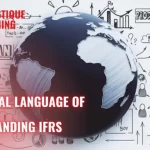As your company grows, there is potential to expand overseas to maximise your reach and increase sales. However, this expansion will come with complications and challenges you may not have considered financially.
It’s important that you approach an international move with research, data, and confidence. You must understand the terminology, financial differences across countries, and taxation implications.
Developing a sound logistical structure with supply chains and working with trusted suppliers is also important. International trade focuses on specific areas of importance, which change over time. These areas can pose financial risks if not considered in their entirety. Consider the sustainability of your overseas operations, the roles and responsibilities of your team, effective remote communication, and up-to-date technology that could help facilitate your trading.
This course will help you update your knowledge of trade terms, contractual obligations, trade legislation, and how trading overseas could financially affect your business.
Upon completion of this course, participants will be able to:
- Develop appropriate negotiation techniques to ensure financial stability.
- Understand the current legislation around international working.
- Create a strategic process that benefits your business and overseas partners.
- Develop mutually beneficial relationships with partners and suppliers to ensure a stable continuity plan.
- Assess areas of risk and implement mitigation plans.
- Understand the importance of sustainability within your processes and procedures.
- Use the best technology to create effective communication channels.
- Develop a working knowledge of event-triggered finance and recovery.
- Refresh your knowledge of UCP-ICC 600 rules and regulations.
- Develop accessible import and export guidelines for marketing your trade.
- Create in-depth trade finance documentation that aids productivity and quality and maintains financial security.
This course is designed for anyone responsible for trade finance or developing international trade processes within an organisation. It would be most beneficial for:
- Business Owners
- Chief Financial Officers
- Financial Professionals
- Data Analysts
- Marketing Managers
- Account Managers
- Negotiators
- Accountants
- Supply Chain Managers
This course uses various adult learning techniques to aid full comprehension and understanding. Participants will review real-world international financial plans and examine the positives and negatives of each strategic model. They will also be presented with various software options to help with remote communication, record-keeping, and risk assessments.
Participants will work in teams to conduct role-playing activities to negotiate contracts and construct contingency plans. They will develop communication methods and strategies for maintaining good relationships and tracking financial models. Finally, they will create a project plan to flag potential risk areas and present positive solutions.
Day 5 of each course is reserved for a Q&A session, which may occur off-site. For 10-day courses, this also applies to day 10
Section 1: Trade Finance Mechanisms
- Trade finance and the relationship with business banking.
- Trade cycle introductions and lifecycle.
- Financial terms and qualifications.
- International documentation and payment practices.
- ICC 600 rules.
- Credit payment letters.
- Silent, soft, and straight confirmation methods.
- Red clause L/Cs mechanics and their risks.
- Risk mitigation techniques.
- Oil trading and overseas L/C metrics.
- Assessing high-risk countries.
Section 2: International Demand & Contract Maintenance
- The scope and application of demand guarantees.
- Guarantees and indemnities.
- Bid applications and writing standards.
- Productivity and advance payments.
- Guarantees and governing bodies.
- Warranty retention methods.
- Legal jurisdiction and expiration agreements.
- URDG - 758 - ICC ruling.
- COFACE competitors.
Section 3: Guarantees vs. Financial Standby Solutions
- Bid bonds, performance bonds, and retention.
- The mechanics of contemporary issues.
- Assessing and discovering risks on standby.
- Advanced guarantees.
Section 4: Forfeiting & Factoring
- The receivable forfeiting market.
- The political risk involved in forfeit marketing.
- Deferred payments in L/Cs.
- Risk sharing and mitigation planning
- Single exports and interest calculations.
- Debt recovery planning and export.
Section 5: Import & Export Documentation
- The roles and responsibilities of principal parties.
- Documentary collections from importers and exporters.
- Principle changes and banking.
- Correspondent banks.
- The creation and release of documentation.
- ICC uniform rules and guidelines.
- Bills of exchange (B/E).
Section 6: Strategic Structures for Pre-export Finance
- Tolling financial deals and creating relevant contracts.
- Pre-export financing and securitisation.
- Option financing.
- Sustainable procedures and reviewing your process for future development.
- Your software options and communication standards.
- Strategic legislation policies.
Upon successful completion of this training course, delegates will be awarded a Holistique Training Certificate of Completion. For those who attend and complete the online training course, a Holistique Training e-Certificate will be provided.
Holistique Training Certificates are accredited by the British Assessment Council (BAC) and The CPD Certification Service (CPD), and are certified under ISO 9001, ISO 21001, and ISO 29993 standards.
CPD credits for this course are granted by our Certificates and will be reflected on the Holistique Training Certificate of Completion. In accordance with the standards of The CPD Certification Service, one CPD credit is awarded per hour of course attendance. A maximum of 50 CPD credits can be claimed for any single course we currently offer.
- Course Code IND09-102
- Course Format Classroom, Online,
- Duration 5 days














